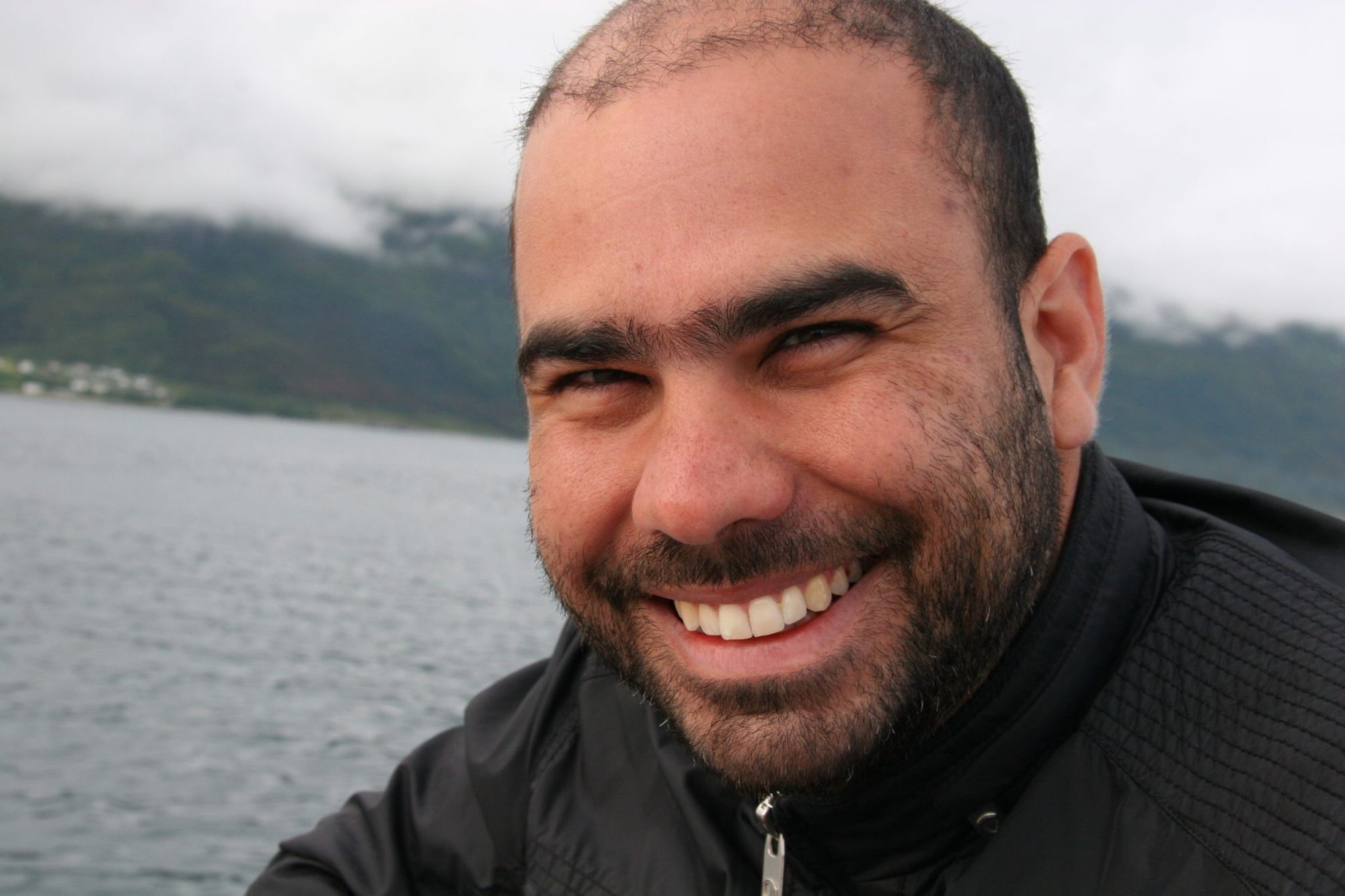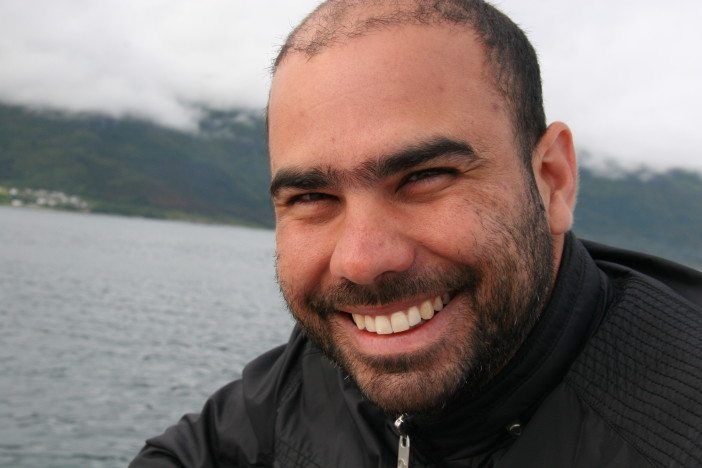Meet Aziz Isham, Executive Producer At BRIC TV


Our neighborhoods of Fort Greene, Clinton Hill, and Downtown Brooklyn suffer no lack of creative, talented, and artistically skilled people.
One of those people is Aziz Isham, a Clinton Hill resident and executive producer of the newly launched BRIC TV, which kicked off in September/October with 12 original shows about everything from Brooklyn-made items and community town halls to tours/discussions about demographic issues with former mayoral candidate and local resident Zephyr Teachout.
Isham joined BRIC TV in February and is transitioning from a decade in commercial TV to nonprofit community-focused news. We caught up with him to talk about the life, learning, and the state of media and technology.
How did you get involved with filmmaking and, now, BRIC?
I studied anthropology at Yale and my first job in TV was at “60 Minutes,” then doing long-form films for the Discovery Channel and History Channel. When reality television really started taking over the nonfiction programming in the mid-2000s, I started my own series of companies focused on really good storytelling with high production value — but for alternative distribution networks like apps and nonprofits. From there, I became passionate about this.
I came to BRIC because I saw this as being an extension of that belief that there can be alternatives to mainstream commercial filmmaking. The proof of that is seeing National Geographic — where I still have friends and where I used to do work — get privatized. . . Every time there’s another cable merger, there’s another negotiation to keep these avenues open. There are very few media companies in America that control the vast majority of the airwaves. It’s really important that we have alternative voices, both for the good of empowering diversity of voices and perspectives and for making sure the news gathering isn’t entirely one-sided.
Describe your job. What do you do on a daily basis?
We have 25 producers, all of whom are exceptionally talented. My job is to enable them to do great work and storytelling, and to draw in outside talent.
Who or what inspires you?
My inspirations are independent filmmakers like Ross McElwee and Errol Morris. The independent movement was impactful in showing how valuable it is as traditional media. Also, Herzog’s documentaries. Three examples of filmmakers who wouldn’t be able to practice their work if alternative funding for the arts wasn’t available.
What has been your greatest accomplishment, here at BRIC and/or in general?
Here at BRIC, it’s the launching of the channel. Without question, getting all these original series off the ground, proving it’s possible to create high quality programming on low budget was a real challenge and the proof is in the pudding.
And your biggest challenge?
The challenge is always going to be funding, trying to compete at the same level as HBO or AMC. But barriers to entry have really diminished over the past 10 years. You can have a really great broadcast quality camera rig for under $5K and totally sufficient editing setup for $2-3K. So more people are able to create fantastic and high quality media. Figuring out how to bridge that divide with needing distribution network has been a challenge. It’s the same challenge running parallel to Brooklyn’s food industry, too: all about local, artisanal ingredients for smaller audiences contrasted with large quantity.
What do you love about Brooklyn?
This neighborhood feels a lot more like the New York that I grew up in in Manhattan. Even though the buildings are shorter, the neighborhood vibes are the same; I recognize other families and can go to the same bodega. It’s also amazing to walk to work, the food is fantastic, the music is wonderful, and the avant garde art presence is great. I love the diversity here, although it’s becoming less and less diverse. Places are stronger when they have a diversity of perspective.
What do you like to watch in your spare time?
I don’t watch nearly as much as I’d like to. Aside from BRIC content, I’ve recently been watching “W1A,” a British TV show about the BBC. It’s a really good example of the commercial TV world and what can go wrong when there’s too much money.
What does your family think about media and being here?
My mother is in Montana, father in DC. Mother came here from Iran, so my family is multicultural and I went to a diverse high school and elementary school. Now I have one child on the way, due in January. My wife is a producer, as well. It’s kind of amazing to bring a child into the world now because communication has increased exponentially. We produce more in one month now than we did in the first 500 years of the printing press.
What are your goals and hopes for the future?
I’d like to continue to see this network grow and be the number one local destination for local filmmakers. I want to support more independent filmmakers and emerging artists, and to continue to make amazing programming.
My hopes are for increased diversity and experimentation in technology, especially when it comes to media. We have a responsibility to make sure there are places like BRIC where people can come in and experiment with storytelling technologies all the time, whether TV, VR (virtual reality), or others. It’s important to have safe spaces for it. I wish there was more of that in Brooklyn.
What would you say to aspiring film and media makers?
Right now, because it’s possible to get the technology, I’d say get out there and make things. Don’t just practice in an academic environment and on your cell phone. Get out there, take time to develop your craft and seek venues to showcase that craft. There’s obviously YouTube and Vimeo to display your work, but also to find likeminded groups and individuals that can help you get out there. Being a filmmaker today, you have to be able to do everything — shoot, produce, edit AND MARKET your work.